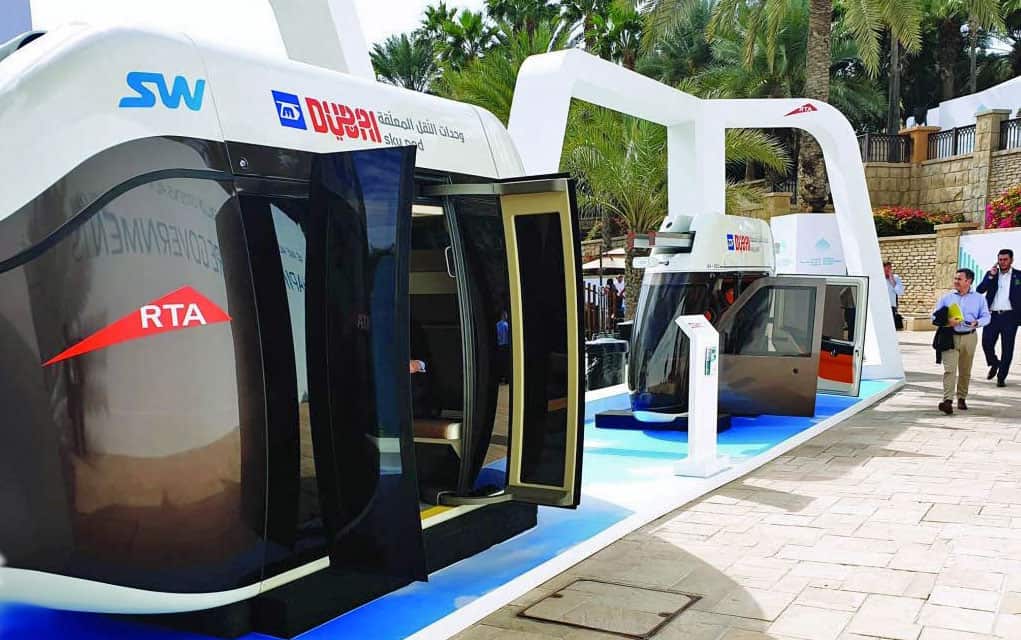By Muhammed Aladdin
Dubai is getting a new means of transport that is cost-effective and environmentally-friendly, Sky Pods. The high-speed cable car-style transportation system is another high-tech infrastructure investment that the Emirate is planning to launch.

Currently, experts from the Roads and Transport Authority, in partnership with the system creators Skywatch Greentech, are running tests on Sky Pods to enhance the available blueprints. Speaking of which, one model, the Unibus, has a capacity of 24 passengers and can travel at the speed of up to 150 kilometers per hour. Another one, the Unibike, has the same velocity and can be manually propelled through suspended rails.
A new video has been released giving a glimpse of this futuristic means of transport that is going to revolutionize commuting in Dubai and the world. The footage shows Sky Pods passing by prominent Dubai landmarks such as the DIFC and the Museum of the Future.
On Friday, on the margins of the World Government Summit, Sheikh Mohammed bin Rashid, Vice President of UAE and Ruler of Dubai, and Dubai Crown Prince Sheikh Hamdan bin Mohammed were spotted trying out the prototypes of the latest Sky Pods.
According to a government statement, the infrastructure plan of Sky Pods details 21 stations connecting vital spots within the Emirate. It is estimated that the system will accommodate 8,400 travelers per hour in any given direction.

Compared to traditional methods of transport, Sky Pods occupy significantly less area and use five times less power than electric vehicles.
“It moves on steel wheels on a hanging railway. It combines the features of a high-performance electric vehicle and sports and recreational features,” said Mattar Al-Tayer, Director-General, and Chairman of the Board of Executive Directors of the RTA.
According to The National, the push towards a more sustainable mode of mass transportation comes as a part of Dubai’s plan to convert 25% of the total journeys in the city into autonomous journeys on various transit means by 2030.



